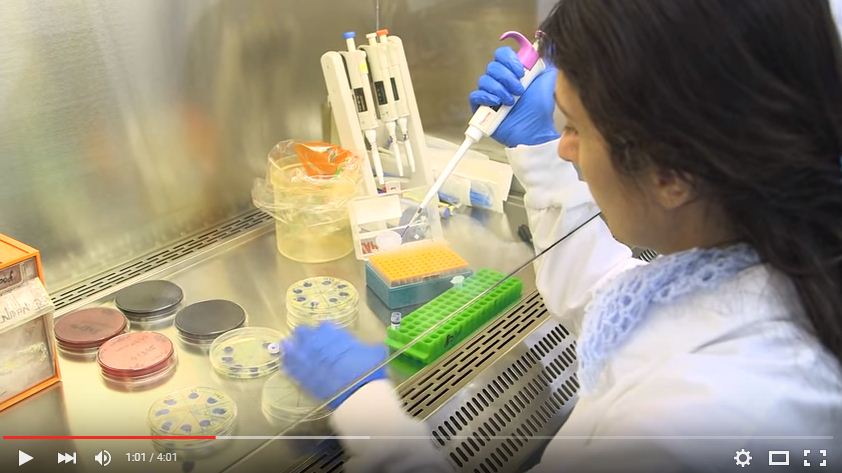
Atomic Pulse
Coronavirus Underscores Need for Urgent Action to Reduce Global Catastrophic Biological Risks

Biological catastrophes
– whether naturally occurring or deliberate – can cost millions of lives,
threaten the global economy, and cause political and economic instability. As one of the existential threats faced by
humanity, global biological catastrophes must be treated as posing a threat to global
peace and security, as well as an international public health challenge.
The ongoing outbreak of novel coronavirus (n-CoV) is
the latest example of how biological risks are growing as our world becomes
increasingly connected. The two largest
Ebola outbreaks have happened within the last six years, and – despite much
attention during crises – recent assessments of global preparedness show that
no country is prepared to fight large-scale epidemics. In addition, advances in widely accessible
biotechnologies, such as gene editing and synthesis, have made it easier,
cheaper, and faster to create dangerous agents.
Safety and security measures have not kept pace, leaving the United
States and other countries unprepared to identify emerging technology risks and
prevent deliberate and accidental releases of pandemic agents.
Recent,
relevant recommendations are at our fingertips.
The Global
Preparedness Monitoring Board report, the Global Health Security (GHS)
Index, and the CSIS
Commission on Strengthening America’s Health Security all point to
the need for immediate action by decision makers to fill urgent gaps and hold
leaders accountable for measurable progress. The GHS Index —a joint project of
the Nuclear Threat Initiative, the Johns Hopkins Center for Health Security,
and The Economist Intelligence Unit—reveals that most countries receive a
failing grade for outbreak preparedness, with an average overall health
security score among 195 countries of 40 out of 100. Even more alarming, most countries do not
have health systems made to withstand an emerging outbreak, with an average
overall health system score of a shocking 26 out of 100.
United
States leadership is vital in the fight to prevent biological catastrophes.
This includes global programs and personnel deployed by the U.S. Centers for Disease
Control and Prevention (CDC) and the U.S. Agency for International Development
(USAID) to detect outbreaks before they become epidemics and to rapidly respond
to emerging threats, like the ongoing outbreak of n-CoV, before they become
global crises. The U.S. Government also provides international leadership
through Department of Defense and State-led efforts to prevent and detect
bioterrorism and state-sponsored development of biological weapons, which work
in collaboration with CDC and USAID.
Of
course, the U.S. cannot perform these missions alone, and the U.S. Government
also must provide leadership and advocacy for other governments to strengthen
international institutions to better prepare for and respond to biological
threats, including the World Health Organization, the UN Office of Disarmament
Affairs, and the UN Office for the Coordination of Humanitarian Affairs. In 2014, the United States launched a major
global response toward ending the devastating Ebola outbreak in West Africa. Simultaneously,
the U.S. led the creation of the Global Health Security Agenda, a multilateral
group of over 60 countries dedicated to preventing, detecting, and rapidly responding
to biological threats. While some important steps have been taken since 2014 to
identify gaps, most identified health security gaps remain unfilled, leaving
the world unprepared for emerging outbreaks like coronavirus, Ebola, or
pandemic flu – and even less prepared for deliberate or accidentally caused
outbreaks of synthesized or genetically engineered agents.
With
multiple calls to action and amid an evolving n-CoV outbreak, NTI recommends
the United States should take the urgent actions to reduce global catastrophic
biological risks.
Specifically,
the United States should:
- Call for a heads-of-state
level summit on biological threats, chaired by the UN Secretary-General. - Increase U.S.
funding for health security and related programs, including within the U.S. CDC, USAID, DoD, and State. - Reduce biotechnology risks, in cooperation with
international research funders, publishers, and the private sector, by
supporting the establishment of a global mechanism for preventing illicit
gene synthesis, funding innovations in biosecurity-by-design, and supporting a dedicated international entity to identify and
provide guidance on countering biotechnology catastrophe. - Spearhead the
creation of a new global health security challenge fund to provide incentives
for countries to fill identified outbreak preparedness gaps. - Support a
dedicated, permanent UN facilitator or office dedicated to responding to high
consequence biological events. - Develop and maintaining a deployed network of U.S. global
health security professionals in posts around the world, dedicated to building
international capacity to detecting threats early and stopping outbreaks before
they become epidemics. - Support a robust global health security workforce trained to
respond in areas of crisis, weak infrastructure, violence, and instability. - Promote innovative solutions for the rapid development,
scaling, and last mile dispensing of medical countermeasures for emerging
biological threats. - Exercise pandemic preparedness at senior levels of
government and participating in bilateral and multilateral pandemic
preparedness exercises at least annually.
Stay Informed
Sign up for our newsletter to get the latest on nuclear and biological threats.
More on Atomic Pulse

The Global Health Security Index: Real-World Examples of Driving Progress
Examples from around the world of the Global Health Security Index in-use.

Horsepox Research Accentuates Urgency for Global Action to Reduce Biological Risks
Horsepox Research Accentuates Urgency for Global Action to Reduce Biological Risks

Beyond Borders, Beyond Biases: Building a Biosecure Future with Diverse Voices
NTI | bio Senior Program Officer Dr. Aparupa Sengupta on why efforts to strengthen global biosafety and biosecurity must prioritize diversity and inclusion.

